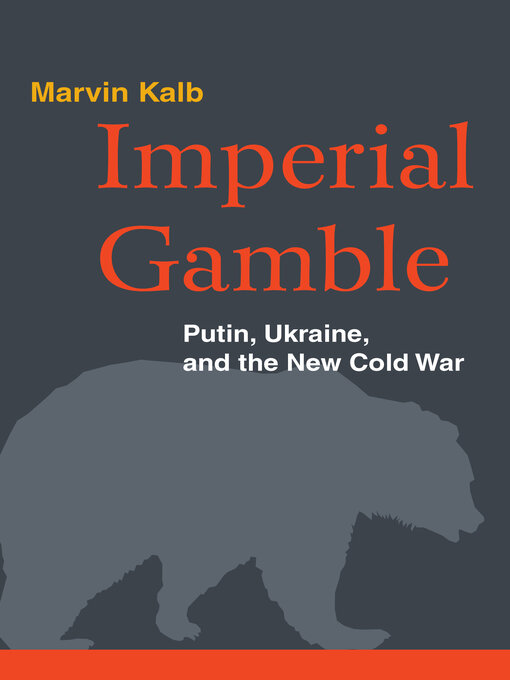Marvin Kalb, a former journalist and Harvard professor, traces how the Crimea of Catherine the Great became a global tinder box. The world was stunned when Vladimir Putin invaded and seized Crimea in March 2014. In the weeks that followed, pro-Russian rebels staged uprisings in southeastern Ukraine. The United States and its Western allies immediately imposed strict sanctions on Russia and whenever possible tried to isolate it diplomatically.
This sharp deterioration in East-West relations has raised basic questions about Putin's provocative policies and the future of Russia and Ukraine. Marvin Kalb, who wrote commentaries for Edward R. Murrow before becoming CBS News' Moscow bureau chief in the late 1950's, and who also served as a translator and junior press officer at the US Embassy in Moscow, argues that, contrary to conventional wisdom, Putin did not "suddenly" decide to invade Crimea. He had been waiting for the right moment ever since disgruntled Ukrainians rose in revolt against his pro-Russian regime in Kiev's Maidan Square. These demonstrations led Putin to conclude that Ukraine's opposition constituted an existential threat to Russia.
Imperial Gamble examines how Putin reached that conclusion by taking a critical look at the recent political history of post-Soviet Russia. It also journeys deep into Russian and Ukrainian history to explain what keeps them together and yet at the same time drives them apart.
Kalb believes that the post-cold war world hangs today on the resolution of the Ukraine crisis. So long as it is treated as a problem to be resolved by Russia, on the one side, and the United States and Europe, on the other, it will remain a danger zone with global consequences. The only sensible solution lies in both Russia and Ukraine recognizing that their futures are irrevocably linked by geography, power, politics, and the history that Kalb brings to life in Imperial Gamble.

